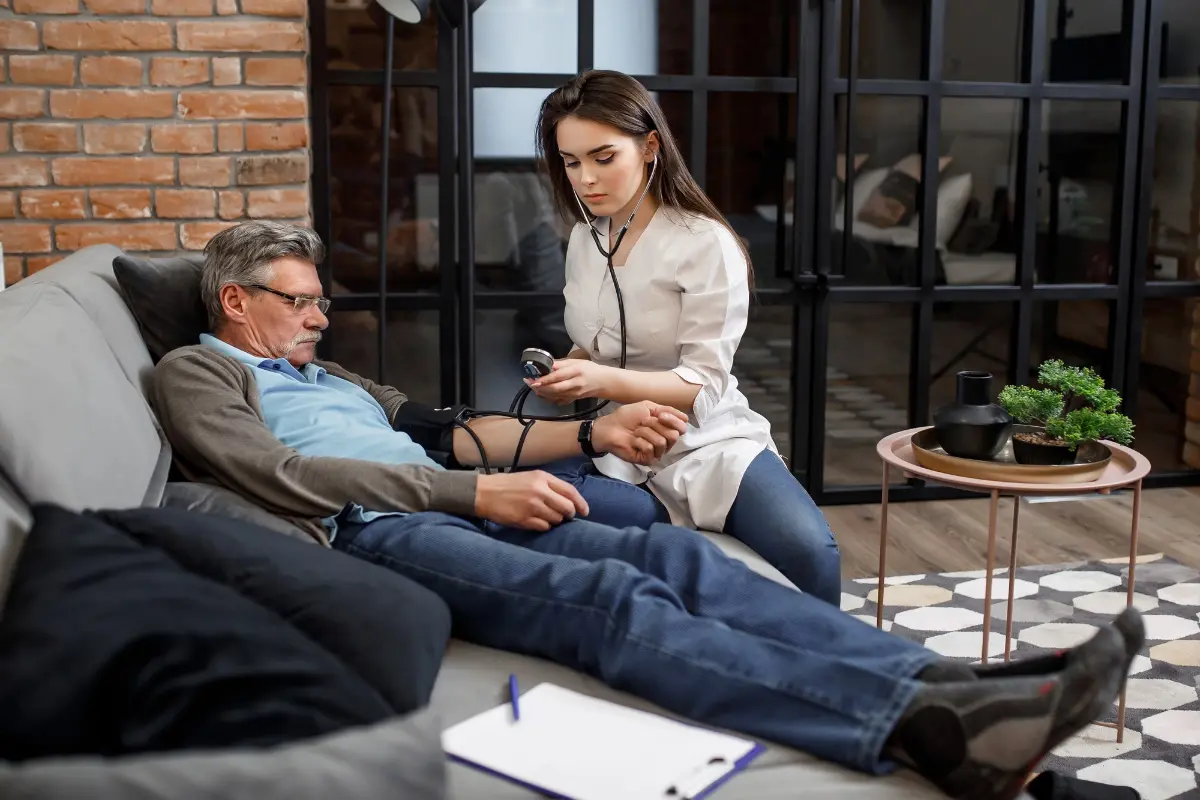Welcome to a thorough explanation on How Can Mental Alertness Help to Prevent Injuries? Accidents might occur unexpectedly in our fast-paced lives, harming us and giving us distress. However, maintaining mental alertness can greatly lower the likelihood of accidents and guarantee your safety. This essay will explore the advantages of mental alertness, how it affects physical health, and offer helpful advice on how to stay aware to prevent potential harm.
How Can Mental Acuity Aid in Injury Prevention?
Being focused, aware, and attentive to your surroundings requires mental alertness. It gives you the ability to spot potential threats, respond quickly to developing circumstances, and take well-informed judgments that could help keep you safe. So how precisely can mental clarity help to avoid accidents? Let’s look at:

1. Situational awareness that is improved for a safer environment
Being mentally attentive enables you to be more perceptive and aware of your environment. You can proactively avoid risky circumstances and avoid accidents by being aware of potential risks, such as slick surfaces, uneven terrain, or harmful objects. Increased situational awareness serves as your safety net against mishaps whether you’re at home, at business, or enjoying yourself.
2. Quick Reaction to Prevent Accidents
Rapid reflexes are essential to preventing injury in high-risk circumstances. Your brain functions more quickly when you are mentally attentive, enabling you to react quickly to unexpected situations. For instance, mental awareness enables you to brake or swerve to prevent an accident if you’re driving and detect a car unexpectedly swerving into your lane.
3. Improved Coordination and Balance
Your cognitive abilities, including balance and coordination, are intimately related to your level of mental awareness. Your body can keep stability and control over movements thanks to a bright intellect, which lowers your risk of accidents and falls. This becomes more important as we become older because falls are a common source of injuries among seniors.
4. Stress reduction and improved mental clarity
Stress and worry can impair decision-making and muddle judgment, which raises the possibility of accidents. Being mentally attentive encourages clarity of mind and lowers stress levels, allowing you to concentrate on the task at hand and make wise decisions. You may negotiate difficult situations with more effectiveness and safety if you remain composed and calm.
5. Repetitive motion injury prevention
Actions that are sloppy or absent-minded frequently lead to repetitive motion ailments like tendinitis or carpal tunnel syndrome. When you’re mentally sharp, you’re more aware of your motions, making sure that you keep the right posture and technique while working repeatedly. The likelihood of these kinds of injuries can be considerably decreased by being vigilant.

6. Avoiding Distractions to Prevent Accidents
Distractions can be hazardous, especially when you need to pay close attention to the problem at hand. Keeping your mind awake makes it easier to avoid sidetrackers and stay on target, which lowers the risk of accidents. Being fully present is essential to preventing potential danger when using heavy machinery, cooking, or crossing the road.
7. Better Decision-Making Under Pressure
Unexpected situations in life sometimes necessitate vital decisions that must be made quickly in order to avoid injury. Your ability to prioritize safety and well-being when making decisions under duress depends on your mental attentiveness. Mental acuity can mean the difference between a near call and an accident, whether you’re handling an emergency or taking part in an adrenaline-pumping sport.
8. Creating Healthful Habits for Long-Term Wellness
Avoiding imminent danger is only one aspect of keeping one’s mind sharp; long-term wellness is also a goal of this strategy. A bright mind is more likely to make decisions that put general health first, such as engaging in regular exercise, eating healthily, and getting enough sleep. These lifestyle choices help over time to lower the chance of injury.
9. Building Resilience to Recover from Accidents
Accidental injuries are a terrible fact of life, but being mentally vigilant can help you develop resilience and recover from them more quickly. You can adhere to rehabilitation programs, carefully heed medical recommendations, and maintain your optimism throughout the healing process if you have a smart intellect. This optimistic outlook lessens the likelihood of setbacks and supports the healing process.
10. Enhancing Confidence in Everyday Activities
When you are confident in your ability to think clearly, you approach daily tasks with more assurance. The reduction of anxiety and stress brought on by potential injuries as a result of confidence empowers you to engage fully and unapologetically in all facets of life. Mental awareness gives you the confidence to safely move outside your comfort zone, whether it’s taking up a new sport or exploring uncharted area.
How Can Mental Acuity Be Increased?
It takes time, effort, and the adoption of healthy lifestyle choices to increase mental alertness. Here are some practical methods to increase your mental acuity:
1. Regular Brain Challenges and Exercises
Brain exercises help keep your mind sharp, just like physical activity does for your body. Learn new skills, play memory games, or solve puzzles to exercise your brain and improve cognitive abilities.
2. Prioritize getting good sleep
The ability to handle daily obstacles is improved with adequate sleep. To guarantee the highest level of mental alertness, aim for 7-9 hours of quality sleep each night.

3. Maintain an active lifestyle
Along with improving physical health, exercise has a beneficial effect on cognitive function. Regular exercise promotes mental clarity and focus by increasing blood flow to the brain.
4. Meditation and mindfulness
Meditation and mindfulness exercises might help you focus more clearly and stay mentally alert. Every day, set aside some time to focus solely on the present.
5. Maintain a Balanced Diet
A healthy diet promotes the health of the brain. To energize your brain, eat meals high in vitamins, antioxidants, and omega-3 fatty acids.
6. Limit Distractions
Reduce distractions when performing tasks that call for focus. Turn off any superfluous electronics and set up a space that is conducive to concentration.
Conclusion
In conclusion, maintaining mental acuity is essential for avoiding accidents and guaranteeing everyone’s safety. People can improve their situational awareness, react quickly to obstacles, and make wise judgments that lower the likelihood of accidents by maintaining mental acuity. Enhancing mental alertness involves doing brain workouts, putting excellent sleep first, and forming healthy habits.
Remember that maintaining mental awareness involves more than just avoiding current threats; it also involves cultivating a strong will and resilient mindset for long-term wellness. A sharp mind equips you to lead a safer and more satisfying life, whether it be handling routine duties, engaging in physical activity, or dealing with unexpected occurrences.
So embrace the power of mental clarity, maintain your concentration, and safeguard yourself from unwarranted injury. Make the most of every moment with a clear, bright mind while remaining safe and watchful.
FAQs
Q: Can being mentally vigilant truly stop accidents?
A: Absolutely, yes. The ability to think clearly is essential for avoiding accidents. You can see potential dangers, act swiftly, and make better decisions by maintaining mental acuity, all of which dramatically lower the chance of accidents.
Q: Is being mentally alert the same as exercising caution?
A: Being watchful and attentive are important components of mental alertness, but it goes beyond that. An all-encompassing approach to injury prevention, mental awareness includes the capacity to analyze circumstances, think clearly, and act correctly.
Q: Can mental alertness aid in athletic and physical endeavors?
A: Yes, mental clarity helps in athletic and physical endeavors. It improves focus, coordination, and decision-making, which boosts performance and lowers the chance of accidents.
Q: Can stress affect one’s mental alertness?
A: Yes, stress can make it difficult to concentrate. High amounts of stress can impair concentration, cloud judgment, and impede reaction times, leaving people more prone to mishaps and injury. Maintaining mental alertness can be achieved by managing stress with relaxation methods and self-care routines.
Q: Does being mentally attentive equate to multitasking?
A: No, mental focus and multitasking are two different things. Multitasking refers to managing numerous things at once, whereas mental attentiveness entails being completely present and attentive in a given task or situation. In fact, striving to multitask might occasionally lower mental efficiency and awareness, increasing the risk of errors and accidents.
Q: Can lack of sleep effect one’s level of mental alertness?
A: Absolutely. Lack of sleep can have a significant negative impact on mental alertness, resulting in decreased cognitive abilities, worse attention, and an elevated risk of accidents. To maintain optimal mental clarity, it is imperative to prioritize getting enough rest.
Q: Can mental acuity be developed and enhanced over time?
A: Yes, with training and experience, one can improve one’s mental attentiveness. Cognitive ability and mental awareness can be enhanced by mindfulness practices, brain workouts, and a healthy lifestyle.
Q: How can mental clarity impact one’s level of personal security?
A: Personal safety and mental acuity go hand in hand. People who maintain their mental acuity are better able to recognize potential dangers, weigh risks, and prioritize their safety and well-being in a variety of settings.




